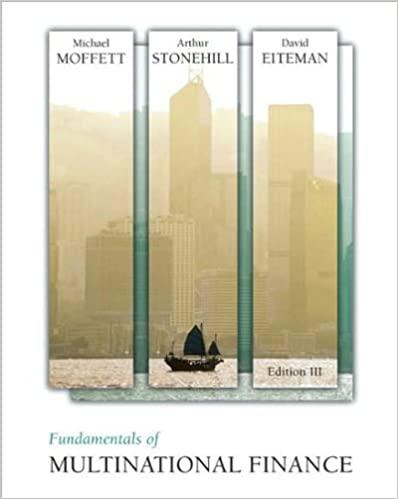2. Do you believe that the U.S. government should allow a company like Stanley to reincorporate outside
Question:
2. Do you believe that the U.S. government should allow a company like Stanley to reincorporate outside the country in order to pay lower taxes? This strategic initiative will strengthen our company over the long-term. An important portion of our rev- enues and earnings are derived from outside the United States, where nearly 50% of our people reside. Moreover, an increasing proportion of our materials are being purchased from global sources. This change will create greater operational flexibility, better posi- tion us to manage international cash flows and help us to deal with our complex international tax struc- ture. As a result, our competitiveness, one of the three legs of our vision to become a Great Brand, will be enhanced. The business, regulatory and tax environ- ments in Bermuda are expected to create considerable value for share owners. In addition to operational flex- ibility, improved worldwide cash management and competitive advantages, the new corporate structure will enhance our ability to access international capital markets, which is favorable for organic growth, future strategic alliances and acquisitions, Finally, enhanced flexibility to manage worldwide tax liabilities should reduce our global effective tax rate from its current 32% to within the range of 23%-25% -Stanley Works, Form 14A, Securities and Exchange Commission, 8 February 2002. Over and over again courts have said that there is nothing sinister in so arranging one's affairs as to keep taxes as low as possible. Everybody does so, rich and poor, and all do right, for nobody owes any public duty to pay more than the law demands: taxes are enforced extractions, not voluntary contributions. To demand more in the name of morals is mere cant. -Judge Learned Hand, Commissioner v. Newman, 159 F.2d 848 (CA-2, 1947).
Step by Step Answer:

Fundamentals Of Multinational Finance
ISBN: 9780321541642
3rd Edition
Authors: Michael H. Moffett, Arthur I. Stonehill, David K. Eiteman





